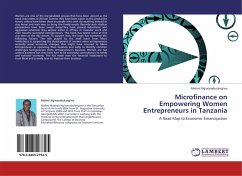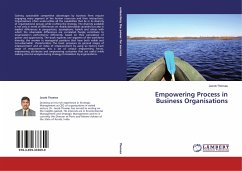Small and cottage industries play a significant role in solving unemployment problems and enhancing economic growth in all under developed and developing countries of the world. In-spite of its exceptional contribution, this sector of economy is mainly plagued by multiple financing problems. This book endeavours to offer solutions to such problems by encompassing various aspects about the financing of rural-based small and cottage industries in different countries like Bangladesh, Sudan, Turkey and Cyprus with special emphasis on the role of Islamic banks. A theoretical framework based on an institutional network approach is developed to conceptualize the process of lender-borrowers network relationships between the financing organizations and small and cottage industry owners within an environmental context. The results obtained from the findings provide a strong illustrative support to the proposition that Islamic banks with their in kind lending policy and a close monitoringof borrowed funds not only solve financial problems of their clienteles but also promote different network relationships between the lender and the borrowers.
Bitte wählen Sie Ihr Anliegen aus.
Rechnungen
Retourenschein anfordern
Bestellstatus
Storno








